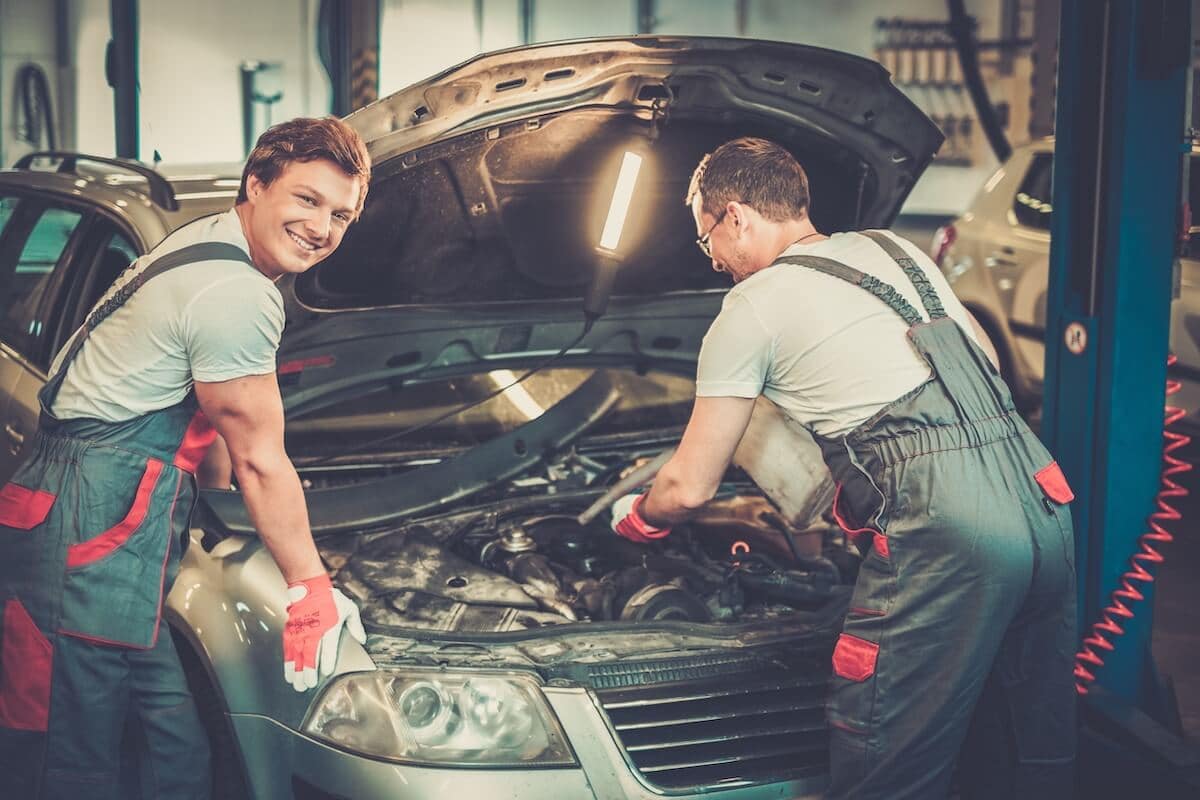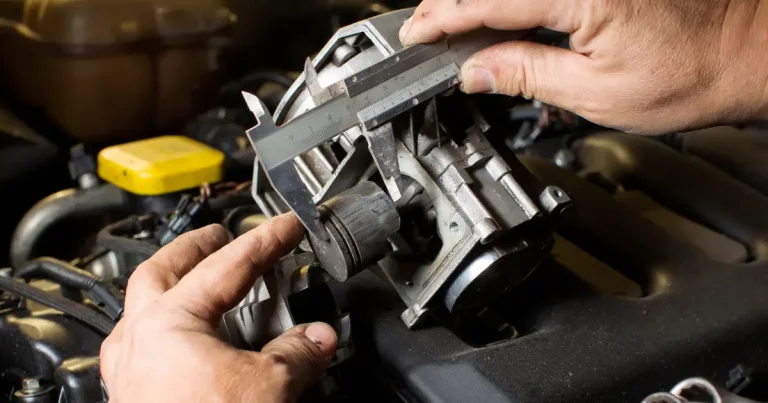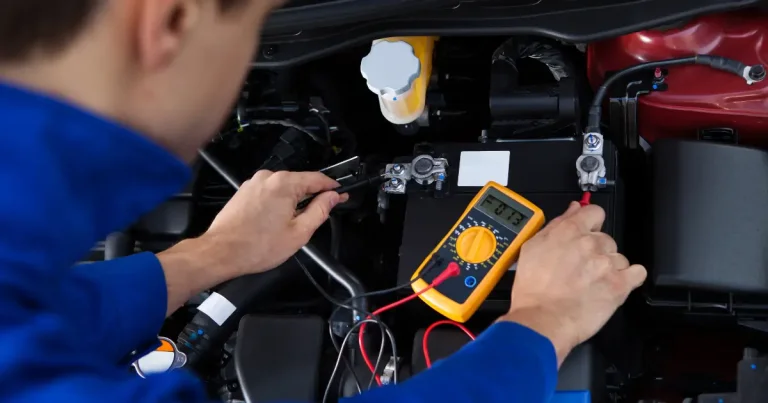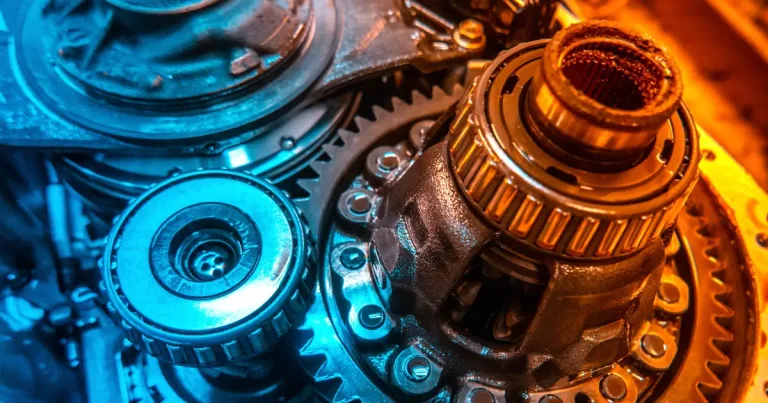The hardest car repair is often considered to be engine and transmission rebuilds. These complex tasks require advanced technical skill and appropriate tools.
What is the Hardest Car Repair?
Understanding the complexities of car repair can help car owners make informed decisions about maintenance and mechanical services. Engine and transmission issues can cause significant vehicle downtime and hefty repair bills, which is why they are notorious for being the most challenging and expensive to fix.
Car repairs range from simple part replacements to elaborate overhauls. Skilled mechanics undertake extensive training to tackle these advanced repairs. For car owners, recognizing the signs of engine and transmission failure early on can save time and money, ensuring that their vehicle remains reliable and roadworthy. Entrusting your car to a reputable mechanic with the requisite expertise is crucial for these intricate repairs.
Credit: protectmycar.com
The Notion Of Difficulty In Car Repairs
Trying to fix a car can prove to be a head-scratcher even for professionals. Some car repairs challenge the most seasoned mechanics. But, what exactly makes a car repair tough? Several factors play a role, from the complexity of the system to the tools required. The time it takes to complete a repair could also add to its difficulty. Let’s explore how difficulty is perceived in the world of car repairs.
Subjectivity In Repair Complexity
What one mechanic sees as a simple fix, another might view as a challenging task. Experience, skill level, and familiarity with a specific car model or make can change the game. For DIY enthusiasts, replacing brake pads might be straightforward, but for others, it’s daunting. This contrast highlights the subjective nature of car repair complexity.
Factors That Influence Repair Difficulty
- Make and Model: Some cars are engineered for easier access to parts, making repairs less tricky.
- Part Location: Hard-to-reach areas can amplify repair difficulty significantly.
- Tools and Equipment: The lack of proper tools can turn a simple task into an impossible one.
- Technical Knowledge: Advanced car systems require in-depth understanding for repairs.
- Physical Effort: Some repairs demand more physical strength or dexterity.
Commonly Dreaded Car Repairs
No car owner jumps for joy when hearing about major car repairs. Certain fixes can almost be nightmares. They often mean days without your vehicle. They also carry heavy costs. Let’s look at some of the toughest jobs that mechanics tackle.
Head Gasket Replacements
The head gasket is a hero in the engine. It seals the cylinders to ensure maximum compression. It also avoids leakage of coolant or engine oil into the cylinders. Over time, this vital part can fail.
Replacement is no small task. Here’s what it involves:
- Engine part removal
- Cylinder head cleaning and inspection
- New gasket fitting
Mechanics need many hours for this job. Precision is key. Skipped steps can lead to engine damage.
Transmission Overhauls
Think of your transmission like the brain of your car’s movement. It switches gears, smoothly sailing you down the road. When it fails, repairs can be daunting.
Overhauls are major undertakings. They require:
- Complete removal of the transmission
- Disassembly of the transmission
- Part inspection and cleaning
- Replacement of damaged parts
- Transmission rebuild and reinstallation
Expertise is crucial. These repairs demand specialized knowledge and tools. The process can be long and costly.
Engine Rebuilds: A Mechanic’s Everest
Every mechanic knows that engine rebuilds represent the pinnacle of car repair challenges. Like climbers tackling Everest, mechanics face a goliath task when they undertake an engine rebuild. It’s a true testament to their skill and patience, often involving meticulous oversight and an extensive investment of time. Let’s delve into the specifics of why engine rebuilds are a mechanic’s Everest.
The Complexity Of Engine Work
Engines are the heart of any vehicle, a complex maze of parts working in harmony. They have lots of components that need precise fitting. Timing and clearances must be exact. A rebuild involves taking the entire engine apart, cleaning it, fixing damaged parts, and putting it all back together again. This process can reveal hidden problems requiring expert attention.
- Valves, pistons, and bearings must match perfectly.
- Oil passages and cooling channels need clear inspection.
- Seals and gaskets must ensure zero leaks.
The Tools And Skills Required
Special tools are the allies of experienced mechanics in an engine rebuild. From wrenches and sockets to engine hoists and precision measuring equipment, each tool plays its part.
| Tool Type | Use |
|---|---|
| Torque wrench | Ensures bolts are tightened to specifications |
| Piston ring compressor | Assists in piston installation |
| Bearing puller | Removes bearings without damage |
Skills are just as critical. Mechanics must have a deep understanding of engine architecture. They need patience, attention to detail, and a knack for troubleshooting.
- Diagnostic proficiency to identify underlying issues.
- Technical knowledge to understand manufacturer specifications.
- Patience in meticulous assembly to ensure each part fits correctly.
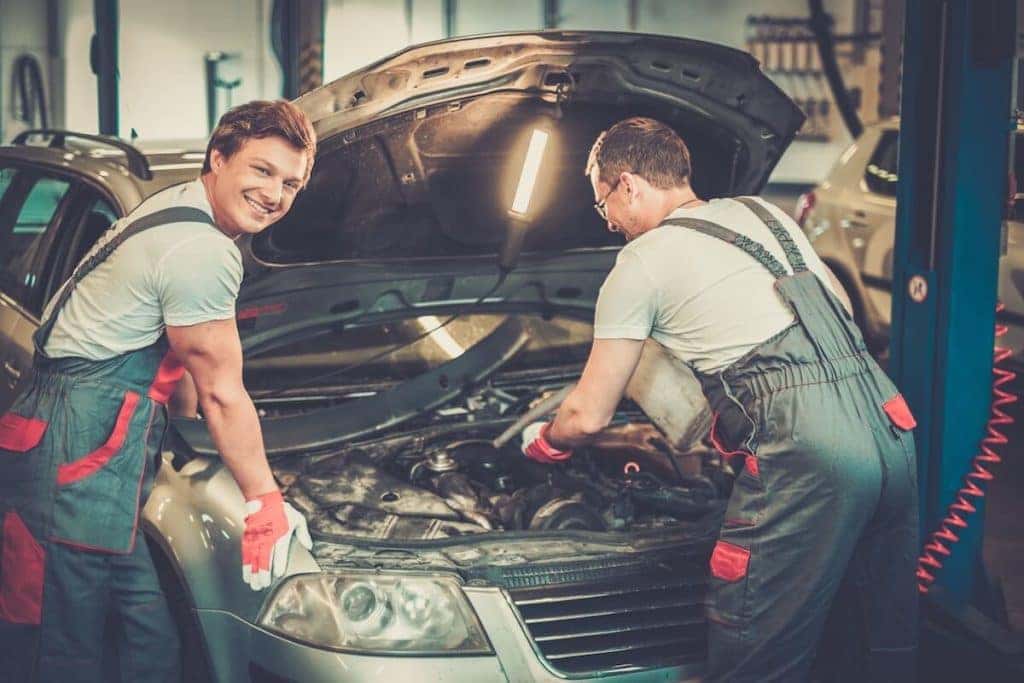
What is the Hardest Car Repair?
Credit: www.toyotaoforlando.com
The Sneaky Challenge: Electrical Faults
Electrical failures in cars often fly under the radar, masking as minor glitches before revealing themselves as major headaches. Simple on the surface yet complex underneath, electrical issues can stump even the most seasoned mechanics. Unlike mechanical problems that wave red flags, electrical faults are the stealthy saboteurs of the automotive world.
Diagnosing Intermittent Electrical Issues
Intermittent electrical problems are notorious. They come and go, making diagnosis a game of patience and skill. Here’s a peek at the process:
- Observation: Note when and how the issue occurs.
- Testing: Use diagnostic tools to check for irregularities.
- Trace: Follow the trail to the erratic behavior’s source.
The Tediousness Of Wiring Repairs
A car’s electrical system is a sprawling network. Miles of wiring crisscross under the hood. Fixing them can be painstaking. Here are the challenges:
- Accessibility: Wires are often tucked away, hard to reach.
- Mapping: Every wire has a route; one misstep can spell disaster.
- Patience: It’s a time-consuming task demanding precision and endurance.
Transmission Problems And Repairs
Car repairs can range from the simple to the incredibly complex. Many drivers fear transmission issues the most. Known for reliability challenges and high repair costs, transmission problems top the list of difficult auto repairs. Let’s dive into why this is the case.
Why Transmissions Are Daunting
Transmissions are complex beasts. Mechanical proficiency and deep knowledge are crucial. There’s an intricate dance of gears and fluid under constant pressure. When this system falters, performance plummets. Expertise is non-negotiable for repairing these pivotal components.
- Multitude of components: Gears, clutches, and valves work together.
- Symptoms mimic other issues: Diagnosing accurately requires skill.
- Specialized tools: Generic garage tools won’t suffice.
The Cost And Labor Intensiveness
The price tag is steep for transmission work. This is not an overnight task. Precision matters, as does labor time. The process often involves removing the entire unit from the vehicle. It can’t be rushed.
| Aspect | Detail |
|---|---|
| Labor Time | Multiple hours to days |
| Parts Cost | Can exceed thousands |
| Special Equipment | Necessary for repair |
Expect hefty bills and significant downtime with transmission repairs. Your car is an important part of your life. Proper care ensures its longevity and your peace of mind.
Suspension Work: More Than Just A Bumpy Ride
Think about a smooth drive; now imagine what happens when it’s not. Suspension work can make or break that experience. It’s about comfort and control, and without proper upkeep, you’re in for more than a bumpy ride. This part of car care keeps a beloved vehicle running smoothly and safely.
Intricacies Of Suspension Systems
The suspension system is a complex dance of parts: shocks, struts, control arms, and bushings. These parts work together to absorb bumps and keep tires tightly on the road.
- Shocks and struts dampen movement.
- Control arms allow wheels to move up and down.
- Bushings cushion, reducing noise and friction.
Perfect harmony among these parts is crucial for a smooth ride.
Potential Complications In Replacement
Replacing suspension parts is no walk in the park. It requires precision and expert knowledge. The system links to the wheel alignment, steering, and vehicle stability.
| Aspect | Complication |
|---|---|
| Disassembly | Risks damaging other components. |
| Installation | Must be angled correctly for alignment. |
| Calibration | Ensures stability and control post-repair. |
Without the right tools and skill, you might end up with a car that’s unsafe or uncomfortable to drive.
The Labor And Precision Of Timing Belts And Chains
The labor and precision involved in dealing with timing belts and chains can make them some of the hardest car parts to repair. These components ensure that your engine’s valves open and close at the correct times. A failure here can lead to serious engine damage. Understanding and tackling this repair requires skill, patience, and meticulous attention to detail.
Timing Mechanism Failures
Timing belts and chains are prone to wear and tear over time. They can snap, slip or erode, which might immediately bring your engine to a halt. Here’s what usually goes wrong:
- Material fatigue
- Improper tension
- Poor pulley alignment
- Oil or coolant leaks deteriorating the belt
Synchronization Challenges
Keeping an engine in sync is the main job of a timing belt or chain. When they fail, the engine’s timing is off. This requires exacting work to reset. Here’s what a mechanic must manage:
- Alignment of crankshaft and camshaft
- Setting the tension to manufacturer specifications
- Checking for other potential engine issues post-repair
Servicing a timing mechanism isn’t a quick job. Special tools are often needed to hold engine parts in place while a new belt or chain is fitted. The process can be intricate and is best left to an experienced technician.

What is the Hardest Car Repair?
Credit: www.reddit.com
Technological Advances And Repair Difficulty
The evolution of automotive technology has transformed vehicles into highly sophisticated machines. This complexity often translates to difficult repairs. Advanced tech in modern cars can challenge even the most experienced mechanics.
Modern Cars And Their Complex Systems
Today’s automobiles are wonders of technology. Integrated computer systems control nearly everything, from fuel efficiency to safety features. As a result, a simple repair can become a complicated task requiring precision and expertise.
- Engine Control Units (ECUs) manage engine performance.
- Advanced Driver-Assistance Systems (ADAS) support safety.
- Sensors and Cameras constantly collect data for various functions.
These complex systems often interlink, meaning a fault in one can trigger problems in others. Diagnosing these issues requires comprehensive knowledge and sophisticated diagnostic tools.
Specialized Equipment And Knowledge
With technological advances comes the need for specialized equipment and knowledge. Professional-grade diagnostic tools are essential for identifying and fixing issues in modern vehicles.
| Equipment | Usage |
|---|---|
| OBD-II Scanner | Diagnoses engine codes |
| Electrical System Tester | Checks batteries and circuits |
| Specialized Software | Updates vehicle firmware |
Autonomous vehicles and hybrid technologies require mechanics to learn continuously. Attending specialized training programs and obtaining certifications can become necessary to keep pace.
In summary, complex systems in modern cars require specialized knowledge and equipment. These technological advances make some car repairs extremely difficult and demand expertise in cutting-edge automotive technology.
Tales From The Garage: Mechanics’ Perspectives
Tucked away in the bustle of a busy garage, mechanics encounter a spectrum of car troubles. Let’s dive into ‘Tales from the Garage: Mechanics’ Perspectives’ to explore the hurdles these unsung heroes face.
Stories Of Troublesome Repairs
Some car repairs leave even seasoned mechanics with stories to tell. From the depth of crammed engine bays to the heights of finicky electronics, these tales unfold.
- Engine Rebuilds: Complex, time-consuming, and often a surprise to the owner.
- Transmission Overhauls: A labyrinth of gears and fluid channels demands precision.
- Electrical Gremlins: Chasing down a short-circuit can turn into an epic saga.
Mechanics’ Tips For Avoiding Hard Repairs
Maintenance is key to keeping your car away from daunting repairs. Check out these mechanics’ tips:
- Regular Check-Ups: Stick to your service schedule like glue.
- Clean Fluids: They’re the lifeblood of your car.
- Listen and Observe: Odd noises and changes in performance can signal issues early.
Assessing And Preparing For Tough Repairs
Stepping into the world of car repairs can be daunting. Certain jobs rank as particularly challenging due to their technical complexity or the need for specialized tools. Knowledge and preparation are key. This section will guide you through the initial steps of tackling the toughest car repairs with confidence.
Researching Before You Start
Start by digging deep into the repair at hand. Understand the problem from multiple sources. Use repair manuals, online forums, and video tutorials. Look into the make and model of your car for any repair idiosyncrasies.
- Study the manufacturer’s guidelines.
- Seek out video walkthroughs.
- Join car forums for personal insights.
- Compare notes with similar repair cases.
Gathering The Right Tools And Parts
With the right research under your belt, focus on assembling the tools and parts. You’ll need a list of everything required. Here’s a simple approach to make sure you’re fully equipped:
- Check your research notes for tool mentions.
- Organize a list of needed tools.
- Verify the specific parts for your car model.
- Shop at reputable auto parts stores or online vendors.
| Step | Tools | Parts |
|---|---|---|
| 1 | Socket Set | Replacement Filter |
| 2 | Torque Wrench | New Gasket |
| 3 | Screwdrivers | Drive Belts |
Remember, precision is crucial for a successful repair. Check the specs. Make sure tools and parts match your car’s requirements.
What is the Hardest Car Repair?
When To Diy And When To Call A Professional
Tackling car repairs can be a daunting task.
Some projects appear simple but harbor hidden complexities.
Knowing when to DIY and when to call a professional is crucial for both your safety and your car’s health.
Diy Projects That Could Go Wrong
Do-It-Yourself car repairs can save money, but some can lead to bigger problems.
Below are a few repairs that often turn out more complicated than expected.
- Transmission Work: It involves specialized tools and deep mechanical knowledge.
- Timing Belt Replacement: Accuracy is key. Mistakes here can ruin your engine.
- Electrical Issues: Modern cars have complex wiring. Diagnosis and repair can be tricky.
Even with online tutorials, these repairs can overwhelm a DIYer.
It’s best to assess your skills before beginning.
Understanding Your Limits
Every car owner has a different skill set and comfort level with auto repairs.
| Task Difficulty | DIY Feasibility | Professional Advice |
|---|---|---|
| Simple (e.g., oil change) | High | Not necessary |
| Moderate (e.g., brake pads) | Moderate | Preferred for guidance |
| Complex (e.g., engine rebuild) | Low | Strongly recommended |
Understanding your limits is key to avoiding costly mistakes.
If in doubt, consult a professional mechanic.
They have the experience to ensure the job is done right.
The Impact Of Regular Maintenance To Prevent Hard Repairs
Many drivers dread car troubles. The hardest repairs can cost a fortune. But you can avoid them!
Regular maintenance keeps your car running smoothly. It’s like a health check-up for your car. It can spot small issues. This stops them from turning into big, costly problems.
The Role Of Regular Checks And Balances
Preventing hard repairs starts with consistent check-ups. Regular checks find issues early.
In a check-up, technicians inspect many parts of your car. They look at the engine, brakes, and more. Catching issues early can save you money.
Examples Of Maintenance That Can Save You From Bigger Repairs
Do these small tasks often:
- Oil Changes: Keep your engine healthy.
- Tire Rotation: This makes tires last longer.
- Brake Inspection: Fix brakes before they fail.
Replacing air filters is easy. It makes your engine breathe better. Changing spark plugs boosts performance. These are simple steps. They help avoid costly repairs later on.
| Task | Benefit |
|---|---|
| Fluid Checks | Prevents engine damage. |
| Battery Tests | Avoids unexpected failures. |
| Belts and Hoses | Keeps everything in sync. |
Your car manual guides your maintenance schedule. Follow it. This helps your car run its best. You’ll face fewer hard repairs. It also helps your car live a long, healthy life.
Conclusion
Determining the toughest car repair challenges drivers differently. Common factors include access to quality parts and skilled mechanics. What’s undeniable is that knowledge can ease the process. For both the do-it-yourselfer and the professional, staying informed protects your vehicle’s longevity and your wallet.
Always choose expertise for the best results.
Best Car Seat And Stroller for Air Travel: Top Picks and Reviews

